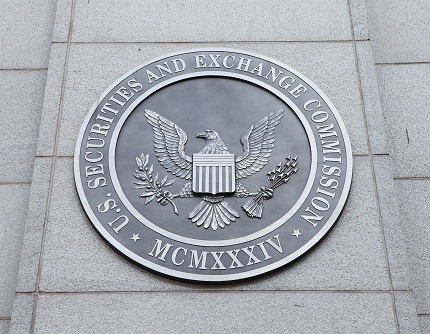 The Securities and Exchange Commission on Oct. 26 proposed new rules to prohibit registered investment advisers from outsourcing certain services without conducting due diligence and monitoring of the service providers.
The Securities and Exchange Commission on Oct. 26 proposed new rules to prohibit registered investment advisers from outsourcing certain services without conducting due diligence and monitoring of the service providers.
The proposal was approved for release Oct. 26 in a divided 3-2 vote, with Republican Commissioners Hester Peirce and Mark Uyeda voting against the proposal.
As for the reasoning, the SEC explains that, as demand for the asset management industry has grown and clients’ needs have become more complex, many advisers have engaged third-party service providers to perform certain functions or services. These functions, the SEC notes, can include providing investment guidelines, portfolio management, models related to investment advice, indexes, or trading services or software. Outsourcing can benefit advisers and their clients, but clients could be significantly harmed when an adviser outsources a function or service without appropriate adviser oversight, the SEC contends.
“Registered investment advisers—more than 15,000 of them in total—play a critical role in our economy, advising more than 60 million accounts with combined assets under management of over $100 trillion,” SEC Chair Gary Gensler said in a statement. “Though investment advisers have used third-party service providers for decades, their increasing use has led staff to make several recommendations to ensure advisers that use them continue to meet their obligations to the investing public.”
In contrast, Republican Commissioner Peirce stated, “Investment advisers are fiduciaries to their clients, so why are we giving them step-by-step instructions on how to do their jobs? If we think Congress got it wrong—that investment advisers cannot, absent regulatory handholding, serve their clients faithfully—then we should tell Congress.” Peirce further emphasized that she believes the approach the Commission is taking is neither statutorily grounded nor protective of investors. “I could have supported Commission guidance highlighting the importance of an adviser’s ongoing obligations to its clients when it has engaged a service provider. I cannot support repackaging existing fiduciary obligations into a new set of prescriptions for investment advisers,” she argued.
Key Provisions
With that as a backdrop, an SEC fact sheet outlines the key changes in the 230-page proposal, including:
- creation of new rule 206(4)-11 under the Investment Advisers Act requiring advisers to conduct due diligence before outsourcing and to periodically monitor service providers’ performance and reassess whether to retain them;
- related requirements for advisers to make and/or keep books and records related to the due diligence and monitoring requirements;
- amendments to Form ADV to collect census-type information about advisers’ use of service providers; and
- a requirement for advisers to conduct due diligence and monitoring for third-party recordkeepers, along with a requirement to obtain reasonable assurances that the third-party will meet certain standards.
The SEC further explains that the rule would apply to advisers that outsource certain “covered functions,” which include those services or functions that are necessary for providing advisory services in compliance with the Federal securities laws and that if not performed—or performed negligently—would result in “material negative impact to clients.”
As referenced above, covered functions could include providing investment guidelines, portfolio management, models related to investment advice, custom indexes, and investment risk, or trading services or software, among others. Covered functions also may include advisers’ use of software as a service or artificial intelligence as a service, both of which are playing a growing role in the investor advisory space.
Consequently, before retaining a service provider, an adviser would be required to conduct due diligence to determine that outsourcing the covered function to that service provider would be appropriate by considering:
- the nature and scope of the covered function;
- potential risks resulting from the service provider performing the covered function, including how to mitigate and manage such risks;
- the service provider’s competence, capacity and resources necessary to perform the covered function;
- the service provider’s material subcontracting arrangements related to the covered function;
- coordination with the service provider for Federal securities law compliance; and
- the orderly termination of the performance of the covered function.
Oversight of Third-Party Recordkeepers
Regarding the enhanced oversight of third-party recordkeepers, the proposal would require advisers to obtain “reasonable assurances” that the third party will meet four standards, which address the third party’s ability to:
- adopt and implement internal processes and/or systems for making and/or keeping records that meet the requirements of the recordkeeping rule applicable to the books and records being maintained on behalf of the adviser;
- make and/or keep records that meet all the requirements of the recordkeeping rule applicable to the adviser;
- provide access to electronic records; and
- ensure the continued availability of records if the third party’s relationship with the adviser or its operations cease.
A public comment period will remain open for 60 days from today or 30 days after the date of publication in the Federal Register, whichever period is longer.

